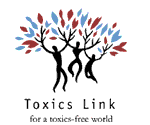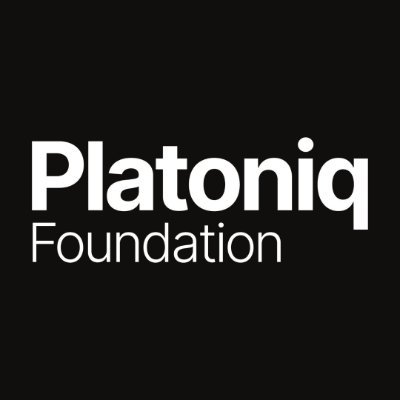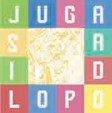About Us
Our Story

Conserving heritage helps reinforce identity, bring together communities and contributes to a sustainable future. In India, conservation of heritage buildings has largely a top-down elitist process. The state of the historic buildings in most Indian cities, is dismal, plagued by issues of structural degradation, a host of economic and legal issues. Cities are rapidly degrading, old buildings are being replaced with nondescript buildings not only changing the urban landscape of the city but also severely impacting pollution levels harming local communities and the planet. Research has proven that restoration and adaptive reuse of existing buildings contributes to achieving the circular economy. However, in the Indian context, lack of access to information, experience and technical skills makes the decision to retain and retrofit an old building confusing and appear unviable.
The Restoration Toolbox aims to change this status quo. We have built this as a user-friendly platform that helps communities make sustainable choices. It helps citizens at every step of the process from conceptualizing, designing, financing and implementing a project through a process of collaboration and co-creation. Conceptualised by Aishwarya Tipnis, the idea of the Restoration Toolbox has been brewing for over a decade. We identified a gap in practice, and over the past decade tried to address this gap through various tools such as student workshops, blogs, books and manuals to demystify the process of heritage conservation for local communities. The COVID 19 pandemic forced us to go behind a screen and thus emerged the need for a digital toolkit, and therefore we began developing graphic aides, manuals and videos to help craftsmen on site implement conservation works. The idea was further validated by being recognized as the 20 most innovative socially impactful ventures in India in the SDG Cart Innovation Challenge presented by SBI Mutual Fund in 2021.
The idea was further crystallized as we took the opportunity of the lockdown to co-create an online resource library with students and young professionals by Jugaadopolis. The manuals enabled the process of decision making, spelling out the materials, their defects, repair techniques and methods in a non-technical way.
In September 2021, we joined the C3 Codes: Community: Creativity (Supported by Goethe Institute Mumbai, Be Fantastic and ZKM Karlshruhe ) to experiment, co-create and test this idea beyond our architectural community. Cross-disciplinary conversations with the members of the cohort helped us in expanding the idea further to include all old buildings and not just heritage buildings.
The Restoration Toolbox thus evolved into an open-source platform, building on the ideas of inclusivity, democracy, and innovation with advice and mentorship from Platoniq Foundation. Powered by Decidim which offers a stable, ethical, and modular architecture maintaining its code and ethical compass, while translating the model for the usage of heritage community. In 2022 our team further expanded as three more organisations joined us. As the Restoration Toolbox enters its next phase, we are now a diverse group of experts from many fields, architecture, construction, heritage conservation, engineering, digital technology, and participatory civic governance. As a team of five organisations supported by European National Institutes of Culture and the EU Delegation to India, we have been shortlisted as one of 11 most innovative ideas for cultural relations by the European Spaces of Culture Project by EUNIC in July 2022.
Our aim is to build a user-friendly platform that is accessible to the direct communities of professionals, craftsmen, policy makers, students and entrepreneurs, which enables them to make choices in co-creating a sustainable future in the Indian context. However, having co-created as an Indo-European project we recognize that many societies face similar challenges and even though the causes may differ, the platform can be replicated and adapted in other contexts as well.
WHO ARE WE
Jugaadopolis is a social innovation initiative sited at the intersection of heritage conservation, education and community development. An initiative of Aishwarya Tipnis Architects, The Restoration Toolbox aims at creating awareness about the rich tangible and intangible heritage of India through innovative and out-of-the-box interactive tools. Aishwarya Tipnis Architects is an award-winning architecture and heritage-oriented design firm based in New Delhi. Through practice they have pioneered work in the field of digital heritage and citizen engagement for urban heritage conservation in India.
Platoniq is a team of social innovators and digital platform developers based in Spain. Since 2001, the association of Civic Tech, free and open culture and citizen participation has been our main driving force to create social innovation regionally, nationally and internationally. Platoniq is the Founder of the Goteo.org platform, a recognized, award-winning creator of an open standard for crowdfunding for social impact and the generation of new digital commons. Currently, the team is engaged in researching the concept of Crowdvocacy as a distributed but coordinated process between different platforms where civic initiatives increase their influence. In this context, Platoniq is working closely with major digital platforms for citizen participation launched by the municipalities of Madrid and Barcelona – Decide Madrid (Consul) and Decidim.
Eutropian is a planning, policy and research organisation helping urban regeneration processes through assistance to municipalities, NGOs and community groups in participatory planning, policy development as well as in fundraising, cooperations and communication. Specialised in urban regeneration, cultural development, community participation, local economic development, social innovation and community-based welfare services, with a focus on building development scenarios on existing resources. Eutropian offers international know-how for inclusive and sustainable urban regeneration projects. Thanks to its multi-disciplinary approach, Eutropian connects various stakeholders around urban planning and regenerations issues, supporting local development through sustainable economic, environmental and social models. In the past years, Eutropian has been initiating various international projects including Temporary Use as a Tool for urban Development, Mercato al centro and Funding the Cooperative City.
Jindal School of Art and Architecture believes in research and innovative excellence that fosters interdisciplinary research cutting across academic programs allowing students and faculty to actively engage in addressing the most pressing issues facing our world today. The pedagogy at JSAA is pivoted on learning from the context, learning to think out of the box, leaning to improvise and learning to crossover and collaborate.
Toxics Link is an environmental NGO, dedicated to bring toxics-related information into the public domain, both relating to struggles and problems at the grassroots levels well as global information to the local level. They work with other groups around the country as well as internationally as we believe that this will help bring the experience of the ground to the fore, and lead to a more meaningful articulation of issues. They engage in on-the ground work especially in the areas of municipal, hazardous and medical waste management and food safety among others. Working in networks, utilising community outreach and education, policy analysis, research, training and program development, we work at the state and central levels to help create solutions, which are driven by the needs of the people.
Pilot Developed by: Jugaadopolis with technical support from Platoniq
C3 Team Members: Aishwarya Tipnis- Project Lead
Supporting Members: Marsha Bradfield, Manan Goyal
Jugaadopolis Team: Hinna Devi Singh
Platoniq Team: Tayrine Dos Santos and David Benabare
Pilot Project Funded by:

European Spaces of Culture Project Supported by:







